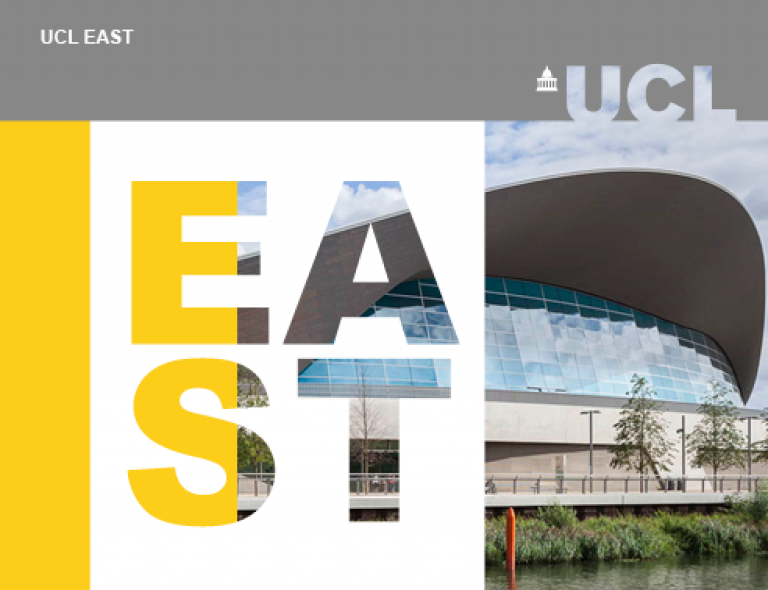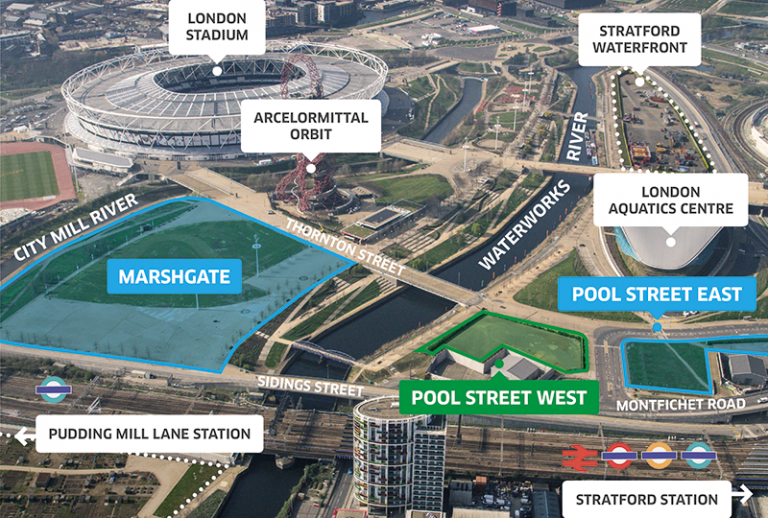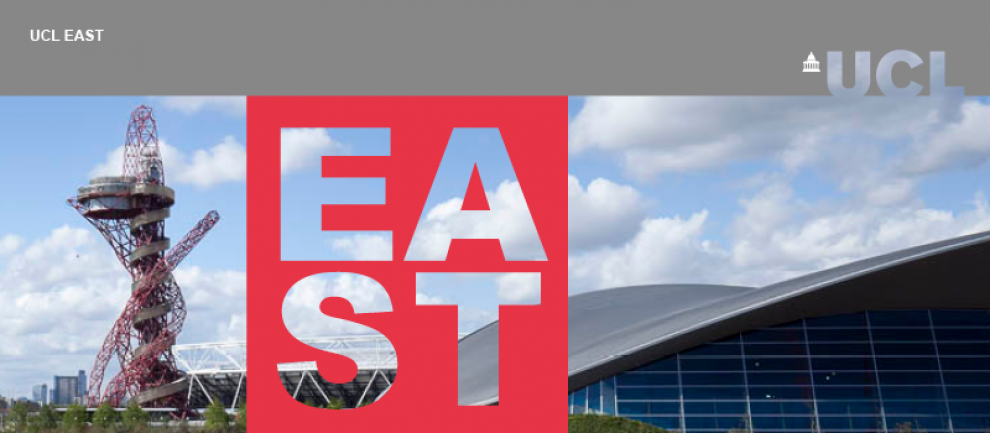Provost's View: UCL East - A historic and transformative development for UCL
8 June 2017
UCL East represents the largest-ever single expansion of UCL's estate since our university was founded.
 This development gives us the land and space that we urgently need
to pursue our outstanding academic ideas, both now and for many decades and
generations to come.
This development gives us the land and space that we urgently need
to pursue our outstanding academic ideas, both now and for many decades and
generations to come.
It is a key cornerstone of delivering the ambition outlined in our strategy, UCL 2034.
A year ago, I gave an update on this exciting initiative. Looking back, what strikes me is just how far we have come since then.
Together, we have finalised our academic vision
I am very pleased that the academic vision for UCL East has been built from the ground upwards from the outstanding ideas that many of you brought forward.
Since August 2016, under the leadership of the Academic Director and Deputy Academic Director, representatives from our Arts & Humanities, Built Environment, Engineering Sciences, Life Sciences and Social & Historical Sciences faculties have worked together to finalise the first set of academic activities and develop a shared vision.
I'm proud to say that this vision is deliberately innovative and ambitious. It will be a place for new courses and initiatives, nurturing creativity and supporting interaction between traditional academic activities - research, education, engagement and enterprise - and across disciplines.
Last time, I detailed the individual academic proposals that were being considered - today, you can find how these will be split between the new buildings on the UCL East website.
UCL East will build on and embody our position as London's global university - but it will also be original in its scope, reach and connections with the local community, the urban surroundings and the Olympic Park.
We have progressed with design and planning
We met a significant milestone this month: the submission of our outline planning application based on our masterplan to the London Legacy Development Corporation (LLDC), which is responsible for planning decisions within the Olympic Park.
While we wait for their response, we are already developing detailed designs for the first two UCL East buildings.
For me, this marks more than just a completed planning milestone - it means that we can start to visualise what our first buildings could look like, how they could be used and how people - whether students, staff, or the general public - could interact with our new spaces.
As ever, this is part of a process, so these designs will change and develop, but the process is one that we should engage with and learn from.
Over the year, you've given feedback that you want to know more about this process - and we have listened. You can now find details of the buildings and academic planning process, along with key facts and timelines, on the updated UCL East website.
We have defined the Future Living Institute
We are now in a position to understand what our first building, currently known as Pool Street West, will house - namely, the Future Living Institute. A small name for a big ambition.
This is a new multidisciplinary home of discovery, bringing together researchers from at least five faculties.
Looking at the past, present and future of living, both locally and internationally, it will explore global challenges such as planetary sustainability, understanding nature, environment and urbanisation, global communications and social inclusivity.
It will have clearly defined clusters of activity, ranging from a Centre for Robotics & Autonomous Systems - part of a wider set of Experimental Engineering Labs - to The Urban Room, a major public and community space hosted by urban academics from across UCL, and Nature-Smart Cities Labs, a research and teaching centre that will use the park as a 'living laboratory'.

Facilities at Pool Street West will also include a new foundation studio for the UCL Slade and a London Memory Archive supporting the study of UCL's east London collections as well as oral histories of the area.
It will be home to the Global Disability Innovation Hub, London's new global research centre bringing together the top minds in disability, design and innovation.
We have put connectivity at the heart of design
I'm excited about the emerging designs, particularly because they have connectivity and accessibility at their heart. Encouraging movement in, around and through the buildings is central, particularly at lower levels, to inviting people into the campus.
To keep this flow, there will be indoor and outdoor spaces for festivals, performance, collections and exhibitions.
Sharing of spaces and facilities will be the norm, and a sense of openness will be generated by vertical spaces spanning multiple floors.
You can gather a clear sense of this aspiration from the recent public consultation materials for Pool Street West. It was great to see how many of you stopped to take a look and express your views.
The report is currently being compiled and will be shared on the UCL East website.
We are invested in becoming good neighbours
UCL East will play a central role in the sustainable development of the local area. It will connect with its surroundings and the environment, bringing the park and the Lee Valley directly into learning and research spaces and experiences.

The programme also seeks to be genuinely sustainable and resilient to future climatic and energy supply uncertainties.
We have already started to engage with a diverse range of community organisations, ranging from youth groups, local schools and teachers, arts groups and built environment specialists.
The programme will continue to engage with these groups and local communities - both in Bloomsbury and Stratford - as UCL East progresses through planning and construction, and especially once it is operational.
Public engagement has helped to shape our planning to date and will help to ensure that UCL East is well considered and positively contributes to the success of Stratford and east London more broadly.
We are part of a cultural & education district
We do not stand alone in our development on the Olympic Park. Alongside other leading projects in nearby sites, such as UAL's London College of Fashion and Sadler's Wells East, UCL East will help deliver the legacy transformation of the park.
In practice, this means that we're working closely with our partners to create a world-class destination, bringing together organisations to showcase art, dance, history, craft, science, technology and cutting-edge design. We're going to be part of a hub - a place where people will want to be, and to visit.
We are clear about the future
Our future timeline is tight, but well defined.
In July, an updated business case will be submitted to UCL Council for approval. By December, we will have the result of our outline planning application and will start the submission process for our detailed design applications.
By May next year, we will start the academic development and approval process for the first tranche of postgraduate courses. And by August next year, we will break ground on the Pool Street West site on the park.
There are still some elements that I know that many of you would like to be further defined at this time - particularly in relation to the operations and practicalities of the UCL East buildings. We are looking to start detailed operational planning around this in 2018.
I look forward to reporting back next year about how much further we have come.
Professor Michael Arthur
President & Provost
 Close
Close

